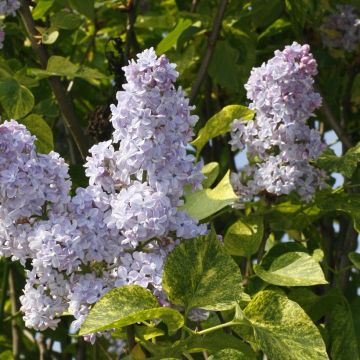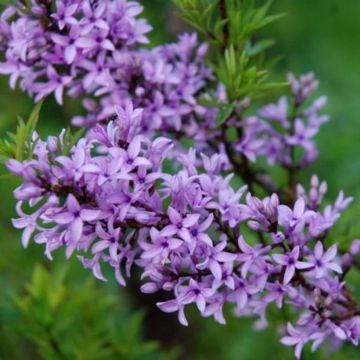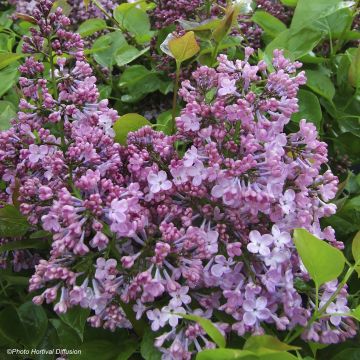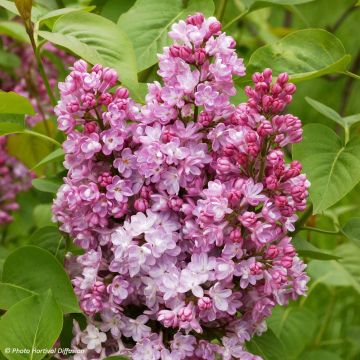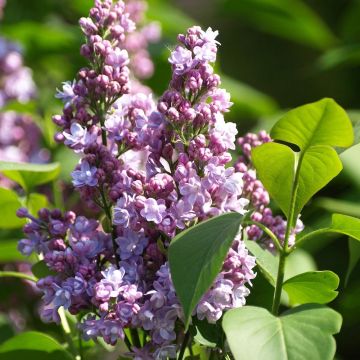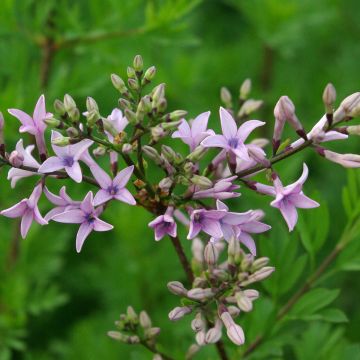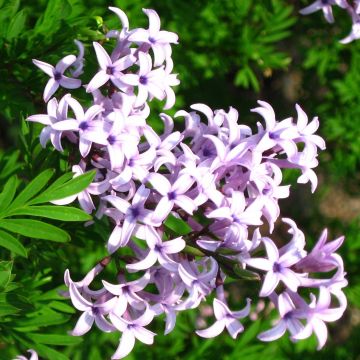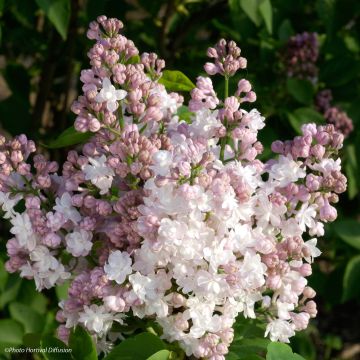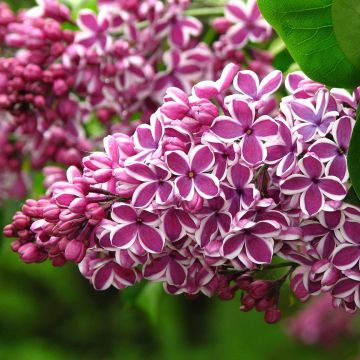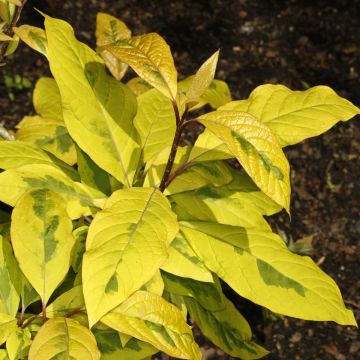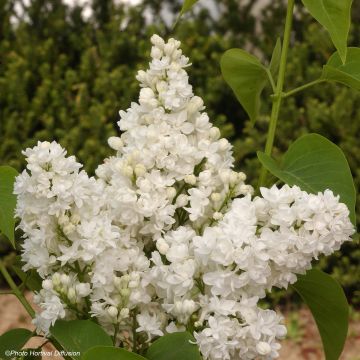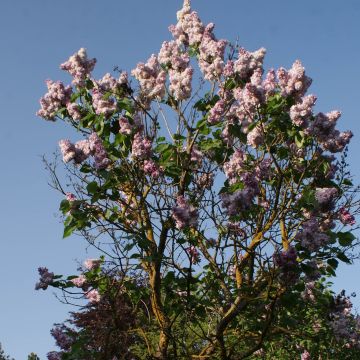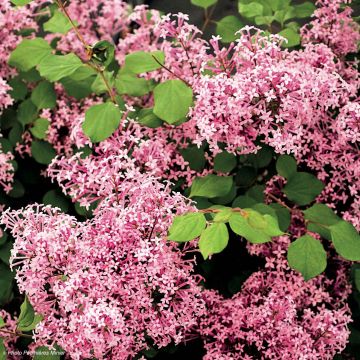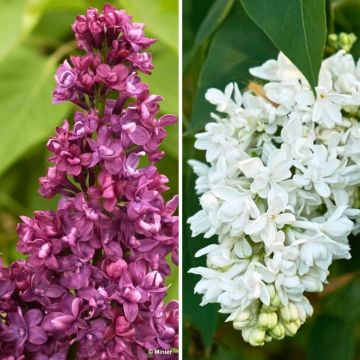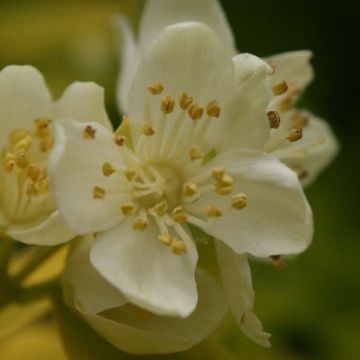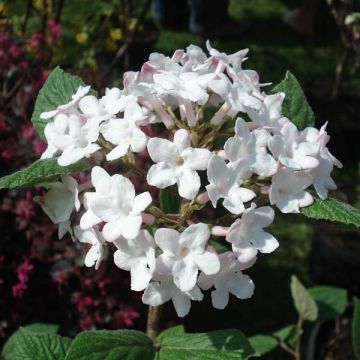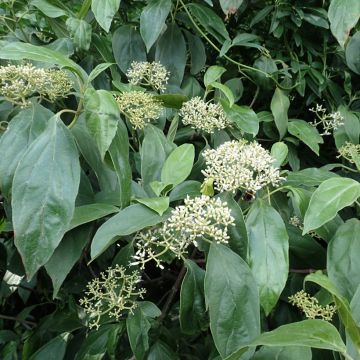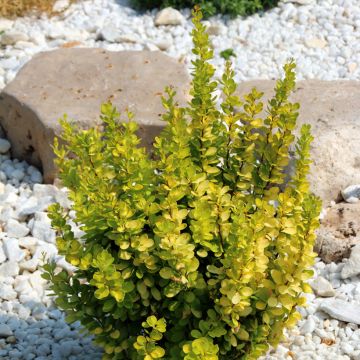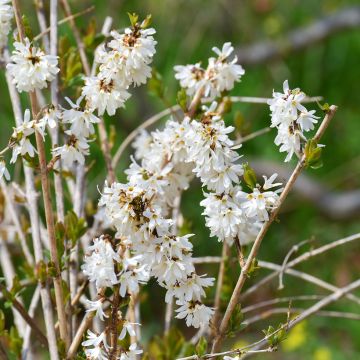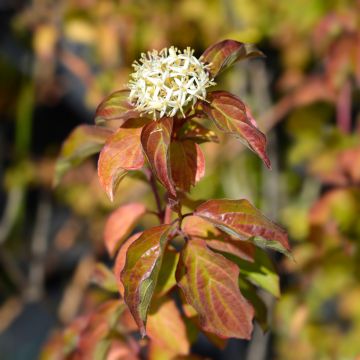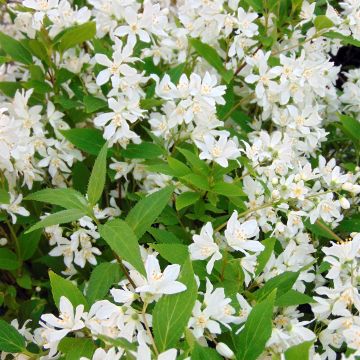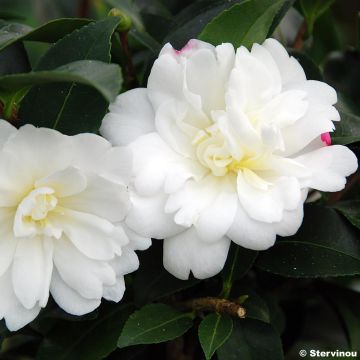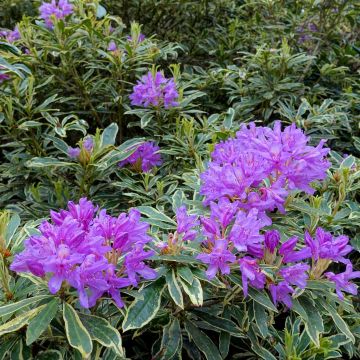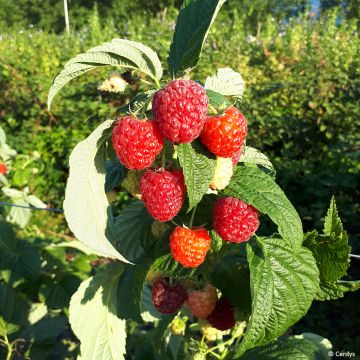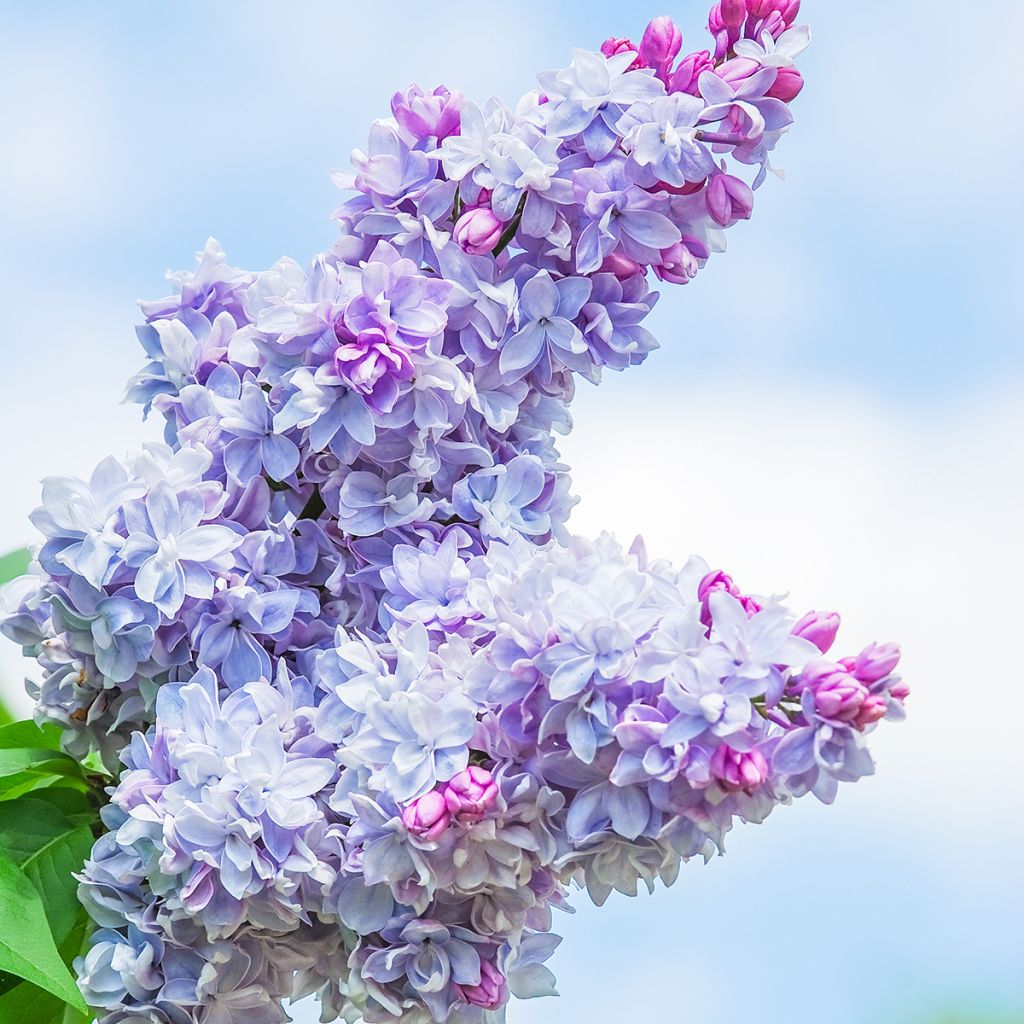

Syringa vulgaris Nadezhda
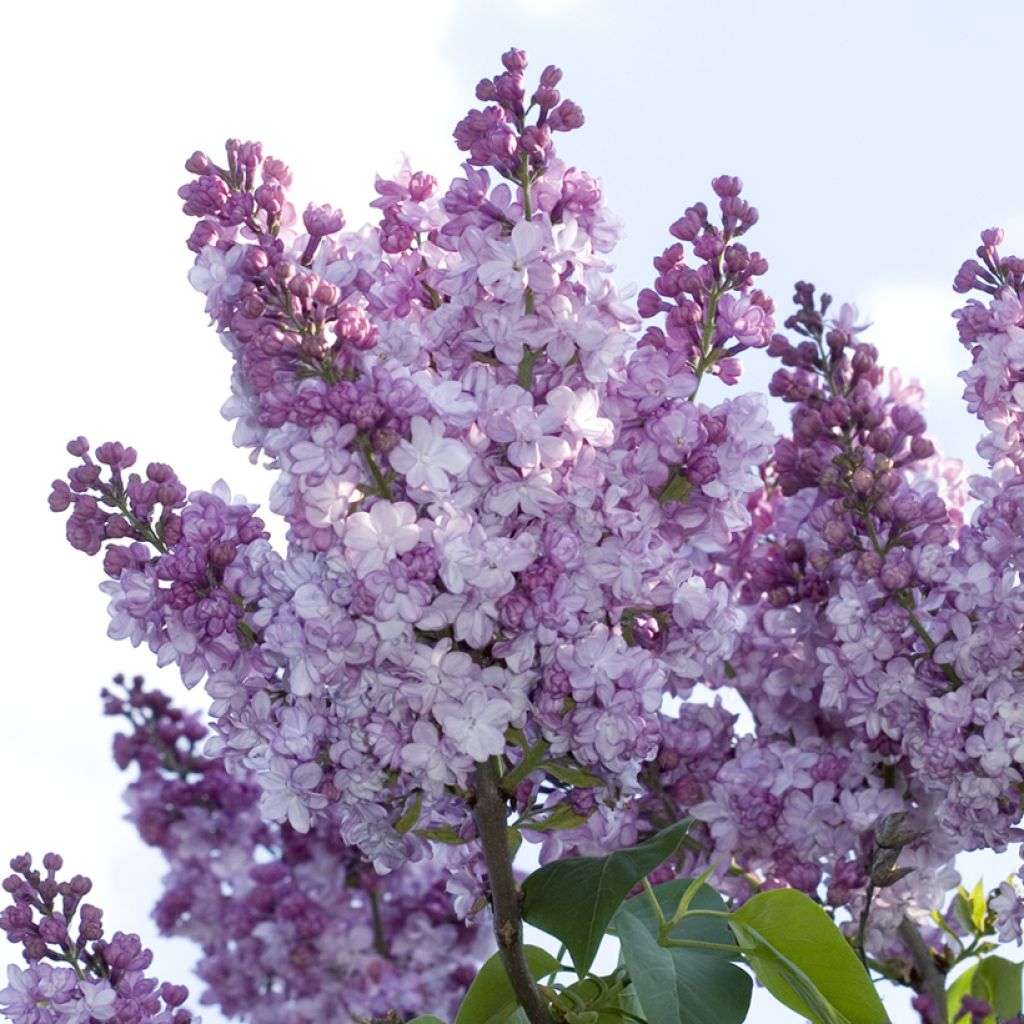

Syringa vulgaris Nadezhda
Syringa vulgaris Nadezhda
Syringa vulgaris Nadezhda
Common Lilac, Lilac
Why not try an alternative variety in stock?
View all →This plant carries a 24 months recovery warranty
More information
We guarantee the quality of our plants for a full growing cycle, and will replace at our expense any plant that fails to recover under normal climatic and planting conditions.
From €5.90 for pickup delivery and €6.90 for home delivery
Express home delivery from €8.90.
From €5.90 for pickup delivery and €6.90 for home delivery
Express home delivery from €8.90.
Does this plant fit my garden?
Set up your Plantfit profile →
Description
The 'Nadezha' Lilac is a Russian variety with double, highly scented flowers derived from the Syringa vulgaris, the common lilac. Its large clusters are filled with purplish-pink buds that open into double mauve florets, turning bluish. In spring, they bloom profusely on an upright and rounded shrub. Perfect in a large flowering hedge, this beautiful lilac can also be placed as a specimen plant. Easy and generous, it adapts to ordinary garden soil, even limestone. Its highly fragrant flowers are wonderful in flower arrangements.
Falling into disuse in the 1960s-1970s, when American or Asian lilacs, with their slender, mannequin-like shape and often perpetual flowering, were discovered, European lilacs and their hybrids, which are more massive, are making a strong comeback in our gardens. Just like old roses, which were criticised for their single flowering and were therefore abandoned in favour of modern hybrids, European lilacs and their hybrids are making a strong comeback in our gardens.
Syringa vulgaris 'Nadezhda' (also known as 'Hope') is a relatively new and quite rare variety of the common lilac. Mr Kolesnikov selected it in Russia not only for its beautiful colour but also for its particularly large inflorescences that cover the tree. "Nadezhda" means "hope" in Russian. It is a shrub of the olive family.
This variety 'Nadezhda' forms an upright and rounded shrub, reaching a height of 4 m (most often 3.50 m) and a spread of 2.50 m, on average. It naturally forms an initially upright bush that becomes rounded over time. Its deciduous, triangular and heart-shaped leaves, 4 to 12 cm long and 3 to 8 cm wide, appear in a relatively dark green shade in spring. Flowering occurs in May or sometimes as early as April 15, depending on the climate. Large ramified clusters appear at the ends of one-year-old branches, grouped in pairs or even more. These compound clusters, called thyrses, sometimes reach a length of 30 cm. Their overall pyramidal shape is somewhat oval. The dark, purplish-pink floral buds open into double flowers, with the corolla forming a long tube at the base. The clusters create a beautiful gradient of purplish-pink to pale bluish mauve tones. They diffuse a pronounced, very floral fragrance.
Easy to grow in any well-drained soil in almost all climates, the common lilac 'Nadezhda' is an essential shrub in a flower garden, whether romantic or old-fashioned. In large flowering hedges, use it mixed with other varieties of lilacs (Syringa), white, mauve, and pink. For example, combine it with wild rose-flowered roses, large mock oranges, or spike Amelanchier... A hedge of lilacs, ornamental cherry trees, Chinese almond trees, and ornamental apple trees planted above a sunken path is a true delight in spring. It can also be used as a standalone plant, surrounded by a ground-cover rose bed, in a small space dedicated to making this modest subject a grandiose shrub at the heart of spring.
It is often forgotten that the common lilac, also known as European lilac, is actually native to Southeast Europe and Western Asia, specifically the Balkan Peninsula. It only arrived in Western Europe at the end of the Renaissance. In nature, this indomitable plant, with its highly fragrant blue-violet-purple flowers, covers rocky hills and withstands cold winters.
Report an error about the product description
Syringa vulgaris Nadezhda in pictures
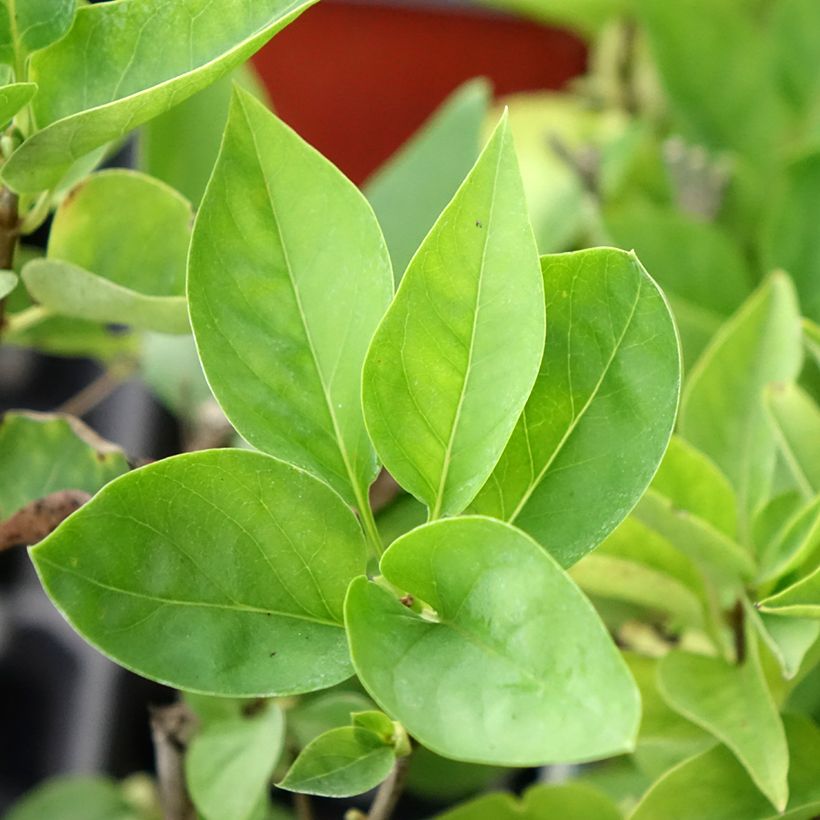

Plant habit
Flowering
Foliage
Botanical data
Syringa
vulgaris
Nadezhda
Oleaceae
Common Lilac, Lilac
Syringa vulgaris 'Nadezhda' HOPE
Cultivar or hybrid
Other Syringa - Lilac
Planting and care
The 'Nadezha' Common Lilac grows best in full sunlight and moist, deep soil, preferably with a mix of clay and limestone. It can grow in different soil types but prefers slightly limestone soils and doesn't do well in strongly acidic ones. It can also grow in semi-shaded areas but may not flower as much. This lilac is strong and can handle temperatures as low as -15°C. It's easy to care for, and mulching and regular watering are only needed in dry climates. In hot summers, it's essential to ensure it has enough water, especially the large-flowered hybrids. You can trim the flowering branches to create bouquets or, at the end of flowering, encourage new blooms and keep the bush from becoming tired. Avoid heavy trimming unless the lilac becomes too large, which may limit flowering the following spring.
Planting period
Intended location
Care
This item has not been reviewed yet - be the first to leave a review about it.
Hedge shrubs
Haven't found what you were looking for?
Hardiness is the lowest winter temperature a plant can endure without suffering serious damage or even dying. However, hardiness is affected by location (a sheltered area, such as a patio), protection (winter cover) and soil type (hardiness is improved by well-drained soil).

Photo Sharing Terms & Conditions
In order to encourage gardeners to interact and share their experiences, Promesse de fleurs offers various media enabling content to be uploaded onto its Site - in particular via the ‘Photo sharing’ module.
The User agrees to refrain from:
- Posting any content that is illegal, prejudicial, insulting, racist, inciteful to hatred, revisionist, contrary to public decency, that infringes on privacy or on the privacy rights of third parties, in particular the publicity rights of persons and goods, intellectual property rights, or the right to privacy.
- Submitting content on behalf of a third party;
- Impersonate the identity of a third party and/or publish any personal information about a third party;
In general, the User undertakes to refrain from any unethical behaviour.
All Content (in particular text, comments, files, images, photos, videos, creative works, etc.), which may be subject to property or intellectual property rights, image or other private rights, shall remain the property of the User, subject to the limited rights granted by the terms of the licence granted by Promesse de fleurs as stated below. Users are at liberty to publish or not to publish such Content on the Site, notably via the ‘Photo Sharing’ facility, and accept that this Content shall be made public and freely accessible, notably on the Internet.
Users further acknowledge, undertake to have ,and guarantee that they hold all necessary rights and permissions to publish such material on the Site, in particular with regard to the legislation in force pertaining to any privacy, property, intellectual property, image, or contractual rights, or rights of any other nature. By publishing such Content on the Site, Users acknowledge accepting full liability as publishers of the Content within the meaning of the law, and grant Promesse de fleurs, free of charge, an inclusive, worldwide licence for the said Content for the entire duration of its publication, including all reproduction, representation, up/downloading, displaying, performing, transmission, and storage rights.
Users also grant permission for their name to be linked to the Content and accept that this link may not always be made available.
By engaging in posting material, Users consent to their Content becoming automatically accessible on the Internet, in particular on other sites and/or blogs and/or web pages of the Promesse de fleurs site, including in particular social pages and the Promesse de fleurs catalogue.
Users may secure the removal of entrusted content free of charge by issuing a simple request via our contact form.
The flowering period indicated on our website applies to countries and regions located in USDA zone 8 (France, the United Kingdom, Ireland, the Netherlands, etc.)
It will vary according to where you live:
- In zones 9 to 10 (Italy, Spain, Greece, etc.), flowering will occur about 2 to 4 weeks earlier.
- In zones 6 to 7 (Germany, Poland, Slovenia, and lower mountainous regions), flowering will be delayed by 2 to 3 weeks.
- In zone 5 (Central Europe, Scandinavia), blooming will be delayed by 3 to 5 weeks.
In temperate climates, pruning of spring-flowering shrubs (forsythia, spireas, etc.) should be done just after flowering.
Pruning of summer-flowering shrubs (Indian Lilac, Perovskia, etc.) can be done in winter or spring.
In cold regions as well as with frost-sensitive plants, avoid pruning too early when severe frosts may still occur.
The planting period indicated on our website applies to countries and regions located in USDA zone 8 (France, United Kingdom, Ireland, Netherlands).
It will vary according to where you live:
- In Mediterranean zones (Marseille, Madrid, Milan, etc.), autumn and winter are the best planting periods.
- In continental zones (Strasbourg, Munich, Vienna, etc.), delay planting by 2 to 3 weeks in spring and bring it forward by 2 to 4 weeks in autumn.
- In mountainous regions (the Alps, Pyrenees, Carpathians, etc.), it is best to plant in late spring (May-June) or late summer (August-September).
The harvesting period indicated on our website applies to countries and regions in USDA zone 8 (France, England, Ireland, the Netherlands).
In colder areas (Scandinavia, Poland, Austria...) fruit and vegetable harvests are likely to be delayed by 3-4 weeks.
In warmer areas (Italy, Spain, Greece, etc.), harvesting will probably take place earlier, depending on weather conditions.
The sowing periods indicated on our website apply to countries and regions within USDA Zone 8 (France, UK, Ireland, Netherlands).
In colder areas (Scandinavia, Poland, Austria...), delay any outdoor sowing by 3-4 weeks, or sow under glass.
In warmer climes (Italy, Spain, Greece, etc.), bring outdoor sowing forward by a few weeks.

































